|
The opening of today’s reading from the Gospel of John depicts Mary Magdalene on the cusp of an encounter with the Risen Christ. “But Mary stayed outside the tomb weeping. And as she wept, she bent over into the tomb and saw two angels in white.” In this moment of bending down and looking into the tomb she thought was empty, Mary provides an everlasting model for those of us seeking the Risen Christ throughout Easter and throughout our lives. Where Jesus’ tomb had been a place of death, it is now a place of resurrection. Where Mary’s tears had symbolized her grief, they now contain her joy. This amazing moment came on a morning when Mary was vulnerable and traumatized. I cannot imagine what Mary must have been feeling there, alone – but I can only guess that seeing Jesus alive again would have been the last thing on her mind. When I feel vulnerable, my world feels very small. In grief and pain, it is difficult to “think outside the box” or to think about the “big picture.” In fact, it is difficult to think at all. Many of us are living now from this place of smallness in the light of the coronavirus pandemic. We are currently facing dangers that have fundamentally altered the patterns of our Church life and our society – along with many other woes that can cause us to despair. The Good News is that none of the woes of the world can separate us from God’s love. As Jesus told the disciples, “I will see you again, and your hearts will rejoice, and no one will take your joy away from you.” (John 16:22) I hope that this Easter week brings you such joy. And if you still have grief, I invite you to trust that it’s okay, and that God can work within that grief. We can take courage from the example of Mary Magdalene, whose own tears opened the portal between life and death. From Mary’s story and from my own story, I have faith that God can work directly within our sorrow – opening new possibilities when we had thought all the doors closed. I believe this is where God is most fully present in our lives – in the spaces where we feel lost, abandoned, and confused. In this way, I am hopeful that this Easter season will help all of us to encounter Christ in truly new and unimagined ways. For more Easter resources, please click here.
1 Comment
At the time I’m writing this post, daily life as we’re used to has been turned on its head as a result of the COVID-19 global pandemic. Non-essential businesses are closed, usually busy streets are empty, many schools and workplaces are operating remotely—if at all—and people everywhere are isolating themselves and thinking about supplies. Perhaps most striking are the extraordinary measures the Church is taking to slow the spread of the coronavirus: public celebrations of Mass are suspended, as are any number of RCIA, seminary, and parochial academic and sodality programs, and any sacramental celebrations that had been planned can only take place with minimal attendance. While the faithful have been dispensed of the obligation to attend Sunday Mass, we can’t help but feel a growing hole in our hearts which can only be filled by lovingly receiving our Lord in the Eucharist. This was not the Lent any of us had been expecting— certainly we are all giving up more than we had bargained for!
Does this remind anyone of Holy Saturday? Holy Saturday allows the faithful to pause and meditate upon the emotionally heavy commemoration of the Lord’s Passion and Death on Good Friday before rejoicing in the glorious joys of Easter Sunday. Holy Saturday is strange because no Masses are celebrated anywhere on the planet and the faithful find ourselves waiting for the Easter dawn when we can rise from having humbled ourselves through the Lenten practices of prayer, fasting, and almsgiving. These days may resemble Holy Saturday for all who are waiting in isolation from the outside world. Like the Apostles’ experience of the first Holy Saturday, we are all resigned to waiting: for positive news about testing and treatment for the virus, yes, but also for the reopening of schools, businesses, and churches, and for being able to rekindle relationships in person. Still, we recall we are not done with Lent yet. However our Lenten spirituality has been affected by self-quarantining, the liturgical life of the Church continues despite the virus. Our churches may be devoid of public celebrations, but the Church Universal endures and can adapt, using the tools of the times to evangelize and to address the yearning of our hearts, souls, and very beings. The Church, after all, is more than the sum of her buildings, real estate holdings, art, music, and writings—she is alive in each of us as we continue our Lord’s earthly ministry by serving one another in love, compassion, and mercy. There are plenty of reasons to hope. We see online reports of priests who, out of love and care for their people, broadcast their celebrations of the Holy Mass through the Internet or radio, adapting scheduled hours in the confessional, Lenten reflections and observances, and Eucharistic Adoration in ingenious ways (such as from cars), and connecting many to available life-sustaining resources. Let’s lift up in prayer our priests who continue to lay down their lives for others, especially for the sick or dying, and who continue to shepherd their people throughout this unprecedented time. Let us also consider offering them a token of appreciation; we must never take them for granted! The faithful are benefitting from the love of our priests despite not being able to see them as usual. We are discovering all sorts of new spiritual resources developed by generous catechists and are finding ways of caring for our neighbors’ spiritual, emotional, mental, and physical needs. We remain united in faith, hope, and charity as we navigate these days of uncertainty and waiting. Nevertheless, we have unique opportunities for personal growth this Lent and Easter: bringing others into a new encounter of trust and peace with Jesus Christ and His Church. Similar to the experience of the early Church facing threats to their very existence, we may not have open parishes at the moment, but we nurture and care for the domestic churches of our friends, families, and loved ones. We are one Church—pursuing holiness and the same heavenly destiny—assured by the Almighty Himself of the ultimate victory over evil and death which is the Easter rising of the Son: “I am the resurrection and the life; whoever believes in me, even if he dies, will live, and everyone who lives and believes in me will never die.”[1] For more resources to accompany you throughout the Lenten and Easter seasons, click here. For more resources to accompany you through the COVID-19 pandemic, please click here. [1] John 11:25-26, cf. Revelation 1:17-18. http://www.usccb.org/bible/readings/040520.cfm
When you hear “Lent,” or “Stations of the Cross,” what comes to mind? Is this just an annual season before the Easter festivities, or a must-follow ritual the Church demands of you? Or, is this a period you can truly focus and reflect on the mystery of God’s love for mankind – and the mystery of one man’s sacrifice and passion for all (including those He was yet to meet, like you and I)? Some years ago, during a discussion among friends, one person asked, “what’s the point of going through Lent and the Stations of the Cross all over again when Jesus did that already?” and the response was, “if we put ourselves through the Stations of the Cross meaningfully, we are able (even just for a few days) to put our feet in Christ’s sandals so that we would also learn to love (even to death) all mankind; regardless of how often we are hurt in the process.” The Passion of Christ demonstrates how much we are loved and how far God will go to show love to us. Sometimes, I think Jesus may have wanted to change His mind while praying in Gethsemane, where he sought God in the midst of sorrow and distress. Sometimes, we also feel sorrow, anguish, and distress. If given the power, we would ‘run out’ of our lives. How often have we come to that point of not wanting to go any further? How often have we thought, “I’m not sure I can do this”? I know I have. Jesus turned to God for comfort and reassurance. Who do you turn to during the tough times? Focus on Spirituality: When everyone Jesus knew had either ‘sold Him off,’ denied Him, or run away for their own safety, it must have felt as though He had been abandoned by those he had thought loved Him so dearly. Even today, there are people all around us who feel abandoned and do not know where or who to turn to. Today, as we ask Jesus where He would like to celebrate Passover, His response is: “I would like to celebrate Passover in your heart.” Have you prepared your heart for the Passover feast? If we also ask Jesus, “who would you like to celebrate it with?” I am sure His response is: “the lonely, the broken, the anxious, the weary, the frightened, and the sick and with you.” As we prepare our own hearts for the Passover feast, let us extend Jesus’ invitation to those in need on His behalf. PRAYER LORD, thank You for choosing my heart to celebrate the Passover; teach me to prepare my heart so that You would have the best Passover feast. As I send out Your invitations, help me look out for the hearts that need You- help me look beyond the cover-up smiles; and as I give out these invitations of hugs, laughter, smiles, joy and comfort, may I remember to take my seat at the table to feast with You. Amen! Service Suggestion: Journey with Jesus through the Stations of the Cross - may it not be out of a sense of obligation but because You know that Jesus needs a friend who will walk with Him through His rise and falls on this journey. Do not look too far, there may be someone closest to you who needs a friend or a listening ear for a short journey. As you take this journey, allow Jesus to prepare your heart not just for the Passover but for all His celebrations and may the way you speak and live give you away (like Peter’s speech betrayed him). To learn more about faith-based service opportunities, please click here. Benita Amoako is a St. Joseph Worker Program NY Alumnae. On March 7, my husband threw a surprise party to celebrate my 30th birthday. That would be the last time I would physically spend with many dear friends for at least a month. It was at the beginning stages of the coronavirus pandemic when the United States seemed to just barely be grasping what was going on across the Atlantic. We were aware but unafraid. The virus was like the flu. It only affected the elderly and those with compromised immune systems. It wasn’t a big deal. We would be fine. But around that time, my family began to take the notions of staying home, social distancing, and self-quarantining seriously. Each day brought more news. So we spent time outside. We tried to stay 6 ft apart. We bought a few more groceries than usual. We began to lay low. Almost three weeks later, I write from home, having gone “out” less times than I can count on my fingers apart from family walks, romps to open fields, or our backyard. No grocery stores. No movie theaters. No social events. No playgrounds. No libraries. No stores. No Masses. I haven’t had to “try” to make Lent this year somber or serious. Every day is a fast from something I deemed important to my life: a fast from physical friendship; a fast from community in the way I’m used to living it; a fast from outings, from the sheer independence of being able to step out of my house and go where I want to go when I want to. This fasting has been humbling. Prayer is the rhythm to my day. It is the breath of my days. The heartbeat. I watch online daily Masses or reflections on the Scriptures. I pray the rosary by myself or with my husband and children. I sing the Divine Mercy chaplet. I continue a novena. I make a spiritual communion with tears in my eyes. I utter supplications for others throughout the day. I offer my fasts—both the voluntary and involuntary—for our world. At the beginning of this Lenten journey, I shared how I thirsted to emerge from spiritual mediocrity. Now I thirst for God himself. I yearn to join the Body of Christ once again in the sacraments and receive him at the Eucharistic table. I live Paul’s exhortation to pray without ceasing in a profound way. And yet God has been so good. And peace prevails in my heart. I have so much to be thankful for: continued jobs and paychecks, long days of sunshine and warm weather, our health, food on our plates, a roof over our heads, snuggles with my children, reading books in our indoor tent, video calls with friends and family all over the country. In spite of everything, we are together. In spite of everything, God is here. In spite of everything, there is always hope. Let us continue to “rend our hearts” this Lent by turning to God and giving him everything we are feeling right now: exhaustion, confusion, anxiety, disillusionment, anger, despair, or fear. We can approach the one who became a vulnerable child for us and give him our own insecurities and vulnerabilities. At the manger, we will be met with his never-ending love. In his homily for the fourth Sunday of Lent, Fr. Mike Schmitz noted that God did not make an unbreakable world. Though he created perfectly, he instilled in mankind the ability to have free will—the ability to break our relationship with God by introducing sin into the human condition. Death, pain, suffering, temptation—all is the result of sin. This pandemic is more evidence of this truth. What matters, however, in the midst of our suffering, is that God does not abandon us to it—nor has he ever. Scripture recounts the story of God’s unfailing love for humanity since the Fall—a story of salvation that continues personally with each of us today. God does not promise fulfillment on earth, perfect joy, blessing, and comfort. He promises the cross, daily. But he also promises us that he will be with us always—even to the end of time—that he came to give life in abundance, that we can be transfigured, and that there is resurrection. He invites us to complete satisfaction and joy with him in Heaven for eternity. And in the meantime, as we continue on our own personal journeys in this “vale of tears,” he remains waiting for us at the well. Inviting us on the shore. Looking for our return on the horizon. Feeding us at the table. He remains pouring out all for us on the Cross. He remains. As we continue to navigate this Lenten season, the coronavirus pandemic, and the approach of Easter, let us go to him with humble hearts. “Let us allow ourselves to be loved, so that we can give love in return. Let us allow ourselves to stand up and walk towards Easter. Then we will experience the joy of discovering how God raises us up from our ashes.” -Pope Francis (Ash Wednesday Homily, 2020) As Lent approaches, an internal monologue begins in my head: “Should I give up coffee? I really love coffee…or maybe I should give up sugar and eat vegetables this Lent?” This typically continues until Ash Wednesday when I sort of pick something that seems to be the most manageable, and also the right type of sacrifice for my spiritual life—a Goldilocks “fits just right” version of Lenten observances. This past Ash Wednesday, I was in the midst of my Lenten debate when Father’s homily quickly brought me out of myself. During his homily, he reminded us that Lent is not for our waistlines, for our piety, nor for our chocolate addiction. Lent is for the faithful to remember that we need God and God alone. The biggest inhibitor to the graces of the Easter season is ignorance of our need for salvation! He reminded us that Good Friday’s action means nothing if we do not remember that we are the ones who put Jesus on the Cross by our propensity to sin. I was sitting in the pew feeling as though the wind had been taken from me; I tend to fall into this forgetfulness. The priest continued to challenge us about Lent by sharing some reflections from G.K. Chesterton’s book What’s Wrong with the World. When asked that question, “what is wrong with the world?” one might say “politics,” “relativism,” “the secular culture,” “sickness,” “a lack of love towards fellow man” etc. But G.K. Chesterton’s main point is that we are what is wrong with the world—each one of us. Not because we are inherently bad or evil, but simply because we are fallen human beings who sin. This sin is what is wrong with the world—sin which we choose to commit and therefore bring into the world every time we choose our own way rather than God’s. Father explained that the only way to truly change the world is by looking at ourselves, our sin, our pride, our judgment, our self-pity, our lack of love for our families, friends, or coworkers, and so on. In reorienting our Lent to admitting that we, with the help of God’s grace, are responsible for the change we wish to see, we become not only responsible for our sin, but admit that we truly need a Savior. Father left the congregation with this quote from What’s Wrong with the World: “The Christian ideal has not been tried and found wanting. It has been found difficult; and left untried.” He encouraged us this Lent to truly try the Christian way of life, starting with radically accepting our need for a Savior! As a result, my Lent has looked different this year. Instead of the usual giving up of sweets or coffee, I am trying to take radical responsibility for the things in my life that I normally would point a finger at or blame others for—the things in my day to day that I want to see changed. The times I would like to say, “if this person would stop doing x,” “if my son would sleep through the night,” “if my husband would unload the dishes” have turned it into prayers for those I need more patience with, the choice of gratitude instead of complaining, and small acts of love for my family. And so, as we continue onward in our Lenten journey, let us remember that our choices to sin are what is wrong with the world and praise God because we have a Savior to Whom we can turn each day. For more resources to accompany you throughout your Lenten journey, please click here. “A clean heart create for me, O God, and a steadfast spirit renew within me.” -Psalm 51 This year I find myself anticipating Lent eagerly. I relished the joy and hope of the Christmas season, but when it came to an end, I entered into Ordinary Time and found myself slushing through the seemingly never-ending gloom of winter. You know the season—the small chunk of the liturgical calendar that sometimes feels like an awkward waiting game between Christmas and Easter. Right now, I feel spiritually complacent—mediocre. My prayer life feels as drab as the ongoing winter. I am distracted and bogged down by cares of the world. I don’t have a consistent routine. But now Lent is upon us. And I’m ready to change things. For Ash Wednesday’s readings tomorrow, we immediately hear the powerful words of the prophet Joel: “Return to me with your whole heart, with fasting, and weeping, and mourning; rend your hearts, not your garments and return to the Lord your God.” This is followed in the second reading with, “Behold, now is a very acceptable time; behold, now is the day of salvation.” There is an urgency in the Scriptures on this day. The tone is serious and I can almost hear St. Paul’s breathlessness while he exhorts the Corinthian church, “We implore you, be reconciled to God.” They ring out to each of us today and serve as a wake-up call to Christians: do not wait until tomorrow to pursue holiness, but start now, this very minute. The readings begin to awaken me from my spiritual slumber. However, words alone do not suffice in spiritual conversion. They require action—a response. Rather than causing me panic, the readings continue by offering concrete solutions. Christ himself instructs us, telling us to give alms, pray, and fast in tomorrow’s Gospel: “Take care not to perform righteous deeds in order that people may see them… When you give alms, do not blow a trumpet before you.” (almsgiving) “When you pray, go to your inner room, close the door, and pray to your Father in secret.” (prayer) “When you fast, do not look gloomy…anoint your head and wash your face, so that you may not appear to be fasting.” (fasting) These instructions are God’s response for how to “return to the Lord with your whole heart” this season. We are not left with lofty, unattainable goals, but with action. This is what Lent is all about: responding to God’s grace and promptings in our lives to pursue holiness with greater attention and effort through prayer, fasting, and almsgiving. Only two times a year does the Church ask us to prepare at so committed a rate: Advent and Lent. The reason for this is because Advent and Lent prepare us for the two most important theological moments of Christianity: the Incarnation of God made flesh in the birth of Jesus Christ and the Resurrection of the Savior after his crucifixion and death. In order to even begin to grasp, understand, and celebrate the enormity of these events, we need to be spiritually awake. And the best way to wake up and prepare for Easter is through prayer, fasting, and almsgiving, which the Church invites us to do during the Lenten season. And our spiritual fathers remind us that “now is a very acceptable time…Now is the day of salvation” (emphasis added). Currently in my spiritual life, I feel a bit like the rich fool in the Gospel. He reached a level of material comfort that led him to build larger barns to store his wealth, only to have his life demanded of him that very night. While I don’t resonate with his material wealth, I feel satiated as he did by the things of the world. As I enter into the Lenten season, I find it hard to concentrate in prayer because I’m thinking of material goods or worldly concerns. It was not the wealth of the man itself that was wrong or evil, but his complacency. He looked at the “many good things” he owned and decided to rest, eat, drink, and be merry. Christ then goes on to say he was rich in treasure for himself but not “rich in what matters to God.” What matters to God is a relationship with each of us (prayer), a life lived in service to others (almsgiving), and occasional self-sacrifice (fasting) that increases our discipline, unites our sufferings to Christ’s on the cross, and increases our reliance on God himself. So now, as I find myself at the beginning of this Lenten season, I want to emerge from my spiritual complacency and respond to the Lord’s call to return to him with my whole heart. Will you join me? For more resources to accompany you through your Lenten journey, please click here. Are you tired of the feasting? We are at the tail end of feasting after the Easter season with the celebration of the Solemnity of Corpus Christi last Sunday. We experienced the 50 days of Easter, the Solemnity of the Ascension of the Lord, Pentecost, the Solemnity of the Holy Trinity, and finally, the Solemnity of Corpus Christi. In my family, we have partaken in a fair share of feasting on treats, and I am almost ready for a period of fasting again. The transition from the Easter season into Ordinary Time can lead to a misunderstanding of what the Church is calling us to during this liturgical season. It is easy to see Ordinary Time as boring or as a time for laziness, but if we look at the liturgical calendar and journey along with the Apostles in the Scriptures, we can see that it is just the opposite. Reflecting back on the Scriptures read during Lent and the Triduum, we see the disciples’ confusion about what Jesus was preparing them for. He warned them often that He had to suffer, die, and rise, and yet they were still in hiding and unsure of their mission after the crucifixion and Resurrection. Scripture states that they were locked in the Upper Room in fear of the Jews after Christ’s death and then that they were left “looking intently at the sky” after Christ’s Ascension. It is not until Pentecost, when the Holy Spirit descends upon the disciples, that the gift of understanding is given to them and they are able to go forth and spread the Gospel message. In celebrating the Solemnities of the Ascension and Pentecost after Easter Sunday, we come to understand our role as Christians on mission. We are reminded that we too are equipped with the Holy Spirit for the call to go out to all the nations and proclaim the Good News, baptizing in the name of the Trinity. We next celebrate the Solemnity of the Holy Trinity, a day to contemplate that the Holy Trinity is relationship itself, and we are invited into that relational exchange of love among Father, Son and Holy Spirit. As the Catechism explains, "By the grace of Baptism ‘in the name of the Father and of the Son and of the Holy Spirit,’ we are called to share in the life of the Blessed Trinity” (CCC 264). This Solemnity invites us to ponder the vastness and majesty of God in three persons and His great love for His creation. Finally, the Church celebrates the Solemnity of Corpus Christi (Latin for “Body of Christ”). Christ, after the Ascension, remains with us in the bread and wine transformed into His Body and Blood during the celebration of the Mass. This Solemnity focuses our attention and hearts on the greatest gift to the Church: the Body, Blood, Soul and Divinity of our Lord in the Holy Eucharist. Together with the celebration of the other feasts after Easter Sunday, the celebration of Corpus Christi is a moment of grace given to us today that propels us into this season of Ordinary Time. If we look at the calendar, the Church has been preparing our hearts to enter into this celebration of Corpus Christi. We needed Jesus to establish the Eucharist (Holy Thursday), to suffer, die and rise (Triduum), to return to the Father (Ascension), and to send the Church an outpouring of understanding for Her mission through the Holy Spirit (Pentecost). As a result, we can ponder and enter into the life of the Holy Trinity (Solemnity of Holy Trinity). All of these feasts prepare the Church for the Solemnity of Corpus Christi and for our journey into Ordinary Time. The Holy Eucharist is the strength for our journey in the ordinary. The Body and Blood of Jesus assists us in following the will of God as we receive God Himself. The Solemnity of Corpus Christi can be celebrated with hope that Jesus is with us in this Holy Sacrament, and the Church is calling us to continued growth in Ordinary Time. Questions for Reflection: How can you use Ordinary Time in order to grow in your faith? What graces from Lent and Easter can help propel you into Ordinary Time? The Feast of Pentecost occurs on the seventh Sunday following Easter Sunday. On this day, we commemorate the occasion of the Holy Spirit descending upon the disciples of Jesus, marking them each with “tongues of flame,” and allowing them to speak and proclaim in different tongues, or languages. To describe this moment in early Church history as a “tipping point” would be an understatement. Pentecost signifies a unique outpouring of God’s love and spirit upon those first men and women to follow Jesus Christ, empowering them to expand and carry His message of salvation to all nations. Today’s first reading from the Acts of the Apostles depicts this anointing of the Holy Spirit, in such a way that has inspired numerous works of music, literature, and art – including some artwork appearing here at the Catholic Apostolate Center! As I reflect on the mystery of Pentecost, and ponder what it could mean for us in this current day, I am drawn to these particular passages from today’s Scriptures: Reading 1: ACTS 2:1-11 “And suddenly there came from the sky a noise like a strong driving wind, and it filled the entire house in which they were. Then there appeared to them tongues as of fire, which parted and came to rest on each one of them.” Have you ever been in a room that was particularly quiet – and then suddenly, for no discernable reason, your senses sharpened dramatically? When I read today about the “strong driving wind” filling the entire house where the disciples were, this sort of heightened awareness is what I imagine the disciples could have felt right before the Spirit arrived and the tongues of flame appeared. Especially in this season following the Paschal mystery, I view this reading as an invitation to seek and contemplate God in the quiet places with an open heart to what may come. Reading 2: 1 COR 12:3B-7, 12-13 “There are different kinds of spiritual gifts but the same Spirit; there are different forms of service but the same Lord; there are different workings but the same God who produces all of them in everyone.” At Pentecost, the flames parted and “came to rest on each one of them [disciples].” I find this so encouraging! This past Lent, we read about Moses and the burning bush, from which God calls out, “Moses! Moses! ...Do not come near! Remove your sandals from your feet, for the place where you stand is holy ground.” Now, at the historical moment of Pentecost, fire is actually sent and bestowed upon each follower. God is still a mystery, as is the Holy Spirit – but a mystery that comes to us and rests upon us. We should not be afraid to be humble like Moses (removing our sandals before God) while at the same time accepting with joy and utilizing with courage the gifts the Spirit may bestow to each of us, according to our unique natures. Gospel: JN 14:15-16, 23B-26 "I have told you this while I am with you. The Advocate, the Holy Spirit whom the Father will send in my name, will teach you everything and remind you of all that I told you." This age of instant communication is hopeful and perplexing all at once. On the one hand, technological advances have made worldwide communication easier than ever – truly a remarkable gift! On the other hand, we have all experienced how shorthand communication styles can misconstrue intended messages and cause confusion or even lasting harm. To me, the promise of Pentecost speaks directly to these challenges. Through the Holy Spirit, we may learn to genuinely and faithfully connect with one another despite all of our perceived differences. There is a definitive continuation of the Easter message contained in today’s Gospel when we are told of “The Advocate… who the Father will send in my name.” We are not alone, even though we live long after the age of Christ. Perhaps this is what is meant when He once said, “I am with you always, until the end of the age” or “Where two or three are gathered together in my name, there am I in the midst of them.” I believe that the Holy Spirit does blow through the rooms of our houses and within our hearts, even today. And while we may not see with human eyes the flames and the dove from this narrative, I believe that we are all surrounded by people who possess the flame within and have allowed The Advocate to work through them – helping them to become little advocates, little flames, and little doves, living among us, bringing peace. “Then Jesus said to His disciples, ‘If anyone wishes to come after Me, he must deny himself, and take up his cross and follow Me. For whoever wishes to save his life will lose it; but whoever loses his life for My sake will find it’” (Matthew 16:25). For about three months, culminating on Easter Sunday, I took part in a spiritual program for Catholic men focused on prayer, ascetism, and fraternity. During this program, men ‘unplug’ from the world, deny themselves, and live in a specifically intentional way for the Kingdom of God. This journey requires men to participate in fraternity with other men, read Scripture and reflections each day, spend at least 30 minutes in prayer with the Blessed Sacrament, and then other things, including: no social media, no computer or phone if not for work or other mandatory tasks like paying bills, taking a cold shower every morning, no sweets, no snacking between meals, no alcohol, getting at least 7 hours of sleep each night, no watching sports, and fasting and abstaining from meat every Wednesday and Friday. This is a journey through the Book of Exodus alongside Moses and the Israelites as they escape slavery in Egypt and learn how to live in true freedom in the Promised Land. The Book of Exodus is a brilliant metaphor for the modern man, called to a freedom rooted in the ability to choose the good for the sake of God and His Kingdom as opposed to a having a ‘false freedom’ and being a slave to desires and passions. Receiving screen time reports on my iPhone each week made me realize how much of a slave I am to my cell phone – to social media, to sports, to instant gratification. I desired to free myself from my phone in a radical way, which this program helped me achieve. This is just one example of how this journey invited me to restructure my day and rid myself of lazy habits. This journey was hard: the first few weeks were hard; the last few weeks were hard. I wasn’t perfect at maintaining all of the disciplines of the program. I can recall starting the cold water for the shower in the morning and letting it run for 5 minutes trying to pump myself up to jump in. This happened many times. But after 3 or 4 weeks, I was jumping right in. The old adage is true: First we make our habits, then our habits make us. The more we exercise true freedom – denying ourselves and making choices that counter our desire for comfort – the easier it is to live in freedom. Feeling much more liberated, I still do not have any social media apps on my phone, I take a cold shower from time to time, and prayer time is a staple of my daily routine. Making these types of continued choices is not easy, and that is why participating in community with the Body of Christ – much like the disciples did— is essential to continued spiritual growth. Though each choice and discipline of this program is deeply personal, a community of like-minded men working through the same disciplines in their own right was a crucial element of this process. This community allowed me to give and receive motivation and encouragement and ensured that the disciplines were being completed in a physically and spiritually healthy way. This is why the Church, in her wisdom, has encouraged the formal development of many religious communities – such as the Dominicans, Franciscans, and Pallottines. I believe this is also why the Church today is stressing Collaboration and Co-Responsibility in ministry. The journey to heaven is not one that should be walked alone. I would encourage you, in whatever spiritual journey you undertake for God and his Kingdom, to do so in community. Question for Reflection: Have you ever participated in a spiritual program, conference, or retreat that had a positive impact on your faith? We are about to enter into the holiest days of the Church’s liturgical year, the Easter or Paschal Triduum. The Lenten season, our time of preparation, will fade away into the spiritually intense days ahead. We know the story and how it ends. The disciples and Apostles of Jesus did not know and did not understand. That would come later. While we may know, do we truly understand? We are called to embrace fully and completely in our minds and hearts the basic Christian proclamation, the kerygma, that Pope Francis summarizes in a single sentence:
“Christ, out of love, sacrificed himself completely in order to save you.” (Christus Vivet, 118) Have we done so? We can learn many things from the Catechism or from Theology. We can do good through works of charity and justice. We can participate in many ritual actions of worship. It is all meaningless without trusting faith in Jesus Christ as our loving Savior who has risen from the dead and is alive today! Again, from Pope Francis: “See Jesus as happy, overflowing with joy. Rejoice with him as with a friend who has triumphed. They killed him, the holy one, the just one, the innocent one, but he triumphed in the end. Evil does not have the last word. Nor will it have the last word in your life, for you have a friend who loves you and wants to triumph in you. Your Savior lives.” (Christus Vivet, 126) May you have a blessed Easter Triduum! Holy Week can be the most emotionally intense period of the liturgical year. Beginning with Palm Sunday, we notice some changes to the usual liturgy, namely: the opening reading, the much longer narrated Gospel, the red vestments, and the presence of blessed palms. As the week continues, our anticipation may be building towards an emotional peak, probably the commemoration of Christ’s death on Good Friday or His Resurrection on Easter Sunday. We may be tempted to take it all in stride and grimace at the raw details of Jesus’s sacred Passion while holding on for the joys of the Easter proclamation. We are, after all, the “Easter people and Alleluia is our song,” according to St. John Paul the Great. I have found myself guilty of this detachment sometimes and now propose, as we have already entered Holy Week, that we immerse ourselves into the intense details—that raw, human emotion—of the Triduum in order to accompany Christ more closely during the most significant moments of His earthly ministry and the fulfillment of salvific history.
On Palm Sunday, we celebrate the entrance of the Savior into Jerusalem, that sacred capital of the Jewish nation then occupied by the Roman Empire. The joys and uproars that Jesus’s entrance brings facilitate the events at the end of the week, when we observe the frenzied crowd turning against the One they now hail as the long-awaited Messiah. Of course, Jesus knows fully what will come to pass in the next days before the Passover. Do we stand among the crowds welcoming Jesus into our hearts and wanting Him to rule over us as the eternal Heavenly King, or are we like the jealous plotting authorities who resent Jesus over His exposure of our hypocrisy and prideful nature? The days between Palm Sunday and Holy Thursday are filled with anticipation. An observer of the times could tell something big was about to happen in Jerusalem. The holy city would soon be embroiled in the rancor sowed by the authorities against Jesus rather than preparing to celebrate the annual Passover meal. Are we spending this time of calm in prayer and preparation in the presence of the Lord, or are we going about our daily routine until we face the ugliness that has been fermenting against Jesus and that forces us to decide if we will stand against the crowds for the sake of the Savior? Holy Thursday arrives and already the focus may be towards the one evening Mass scheduled at the parish. Many dioceses celebrate the annual Chrism Mass earlier in the day, during which the sacred oils of ministry are blessed by the bishop and distributed among the parishes from the cathedral. In the evening, the Last Supper and the Agony in the Garden of Gethsemane are commemorated with liturgical richness: the humble washing of feet, solemn processions, chanting, the use of candles, Eucharistic adoration after the tabernacle is emptied, and then… silence. There is so much to unpack. We can ask ourselves: Am I heeding the Lord’s request to “Keep watch and pray”? Am I remaining vigilant and faithfully at the side of our Lord as he leads the Passover meal, praying with Him in the garden, or not abandoning Him during His arrest? We, of course, cannot celebrate Easter Sunday without recalling Good Friday. This year, I invite you to place yourself at the foot of the cross and gaze upon Christ crucified. With the Blessed Mother and St. John beside you, behold the sight of the suffering Savior, scourged and dying. Listen to His seven final words and feel their intensity. Here the cruelest injustices have been heaped upon Jesus; He bears them willingly and lovingly. Recall your own failings, which have driven nails and scourged the sacred flesh of our Lord. This can be a true time of repentance and faith. Do I offer even a fraction of the love being poured out from the cross this day? The darkness of Good Friday recedes, Holy Saturday arrives and there is…more silence. Our Beloved Lord has died and there is a sudden emptiness as we come to terms with the reality that the departed is gone. We must not gloss over this period before Easter Sunday: take time to mourn for our Lord and the human acts of sin which buried Him in the tomb. It had to occur, but it is not the end. We do not mourn for the dead as if we have no hope— because of the Resurrection, Christians do not fear death or even despise suffering. Jesus bore the worst in humanity with love and died to accomplish salvation for all who seek it. In the holy silence of Holy Saturday, am I reflecting on the events that have passed, long foretold by the biblical prophets, as Mary and the disciples did in the Upper Room? On Saturday evening, we experience the Easter Vigil. This extraordinary Mass begins in darkness outside the Church with the Service of Light in which a “blazing fire” is used to light the Paschal candle. This candle processes through the church and is used to light the unlit candles of all present. Nine readings from the Old and New Testament are read, recounting significant moments of salvation history. It is during this Mass that the Church also welcomes new members from the Rite of Christian Initiation of Adults into the Body of Christ. The congregation joins in the renewal of baptismal promises and recalls their own Sacraments of Initiation. In the wonder of this Easter Vigil, are we joining wholeheartedly in the joy and celebration of the Resurrection? Do we marvel at the re-telling of the mighty acts of God throughout human history? Do we rejoice in welcoming new members to the Church? Finally Easter Sunday, the world rejoices with the proclamation, Christus vincit! Christus regnat! Christus imperat! Christ conquers! Christ reigns! Christ commands! We proclaim Christ’s great salvific act but do not shy away from what He endured to accomplish that eternal victory. We glorify Christ who has ascended from the depths of death to rescue humanity and deliver them to the throne of God. Nothing like this has happened before. The world celebrates God’s great love! Do we joyfully proclaim Christ to those who have no hope in their lives, who yearn for meaning and purpose? By taking the time each day of Holy Week to reflect upon the nuances and details of these great events in Scripture, we can better prepare for the emotional gravitas of the liturgies this week and accompany Christ himself. The graces of standing firm and being witnesses to His Passion can yield the same reward first achieved by the good thief crucified next to Jesus, to whom Christ declared, “Today you will be with me in Paradise.” For more resources to accompany you in your Lenten and Easter journeys, please click here. Holy Week is one of my favorite weeks of the year; each of the days builds with anticipation and I get excited just by the thought of Easter Sunday. Lent is almost through and it’s almost time to be joyful in the Risen Lord. When I was little, I felt this anticipation and excitement too. I would spend Holy Week letting people know that Easter was only a couple short days away—it felt like spring would officially be here as soon as we woke up on Easter Sunday! “The very best holiday of the year” was coming, and I had to get ready for it! Did I fully understand it was Christ that I was waiting for or did I just want to wear my new white shoes for church? Looking back, although it could have been the new Easter shoes, I think my 10 year-old-self would have agreed that I really was waiting for Holy Week as the final stretch to the finish line on a journey that began on Ash Wednesday.
In today’s Gospel reading, we read about moments of betrayal and loyalty. Judas leaves the Last Supper to betray Jesus while Peter in his humanity says that he will never deny him. I find it to be one of the most powerful Gospels of Holy Week. Here’s why: Like Peter, we are called to be disciples whose repentance leads to an experience of God’s forgiveness. Jesus knows that his friends will betray him and that he has limited time left on Earth. On one hand, Judas tries not to be obvious about his deception as he leaves the table, and on the other hand, Peter publicly tells Christ that he will stand by him and never fail him. Ultimately, both men betray Jesus, but it’s Peter who seeks forgiveness and allows himself a second chance. Judas, on the other hand, is overcome with guilt and despairs that his sin is beyond the reach of God’s mercy-- eventually taking his own life. We are like Peter in so many ways! We say we love Christ and that we could never deny him, but at the first sign of pressure we sin and turn our backs on him. How often have we chosen to do something that pulls our hearts from Jesus? It is during Lent—especially during Holy Week—that we recall the pain we’ve caused Christ. This week and each day, Jesus gives us another chance to say to him, “Forgive me; I have sinned.” When Christ meets his disciples after his Resurrection, he asks Peter, “Do you love me?” Let us respond with Peter this Easter, “Yes Lord, you know that I love you!” As Easter approaches, we remember how much we are loved by Christ in his Passion, death on the Cross, and soon to be Resurrection. In these next few days, I challenge you not to say, “Lord I could never deny you!” but instead, “Forgive me Lord, for I have sinned.” Last year on Good Friday, Pope Francis said, “Lord Jesus, always grant us the grace of holy repentance...the spark of hope is lit in the darkness of our despair, because we know that your only measure for loving us is to love us without measure.” This Holy Week, in this time for “holy repentance,” let us make sure to spend these last days in Lent with our hearts preparing for Easter. May we use these remaining days in the desert as a time for forgiveness and allow our hearts to be loved by Christ. May all of our hearts gleam with anticipation for Holy Week and better knowledge of the Risen Lord! On the evening of our wedding, after the ceremony and reception, my husband and I knelt down and washed each other’s feet. It was an act of love and humility that we wanted to be the foundation of our marriage. We had a beautiful example: A King who washed the feet of peasants; a Savior who washed the feet of sinners; a Friend who washed the feet of betrayers. The washing of the disciples’ feet was the act of a dying man. With the last few moments of his precious life, Jesus knelt down. In the last hours with his closest friends, he served. This was the manifestation of the new commandment he was to give moments later at the Last Supper: “Love one another. As I have loved you, so you also should love one another.” Love. This is what it is all about—the meaning of the Christian life. Jesus models love by washing not only the feet of his beloved friends, but of those who will betray him. He knows not only of Judas’ betrayal, but also of Peter’s—which probably stung him even more. He knows Peter, James, and John will fall asleep with him in the Garden. He knows that almost all of his disciples will flee during his torture and crucifixion. And yet he removes his outer garments and kneels to wash their dusty feet. It would not have been a pleasant affair; their feet would have been caked in dirt and bathed in dust. Perhaps their toenails were long. The feet of these gruff men would have stunk. But I do not imagine that Christ poured just a few drops of water on their feet ceremoniously and then moved on. I believe he spent a few quiet moments with each Apostle, truly washing their feet clean of dirt and grime, and making each feel like the only person in the room. I imagine him drying them tenderly, and looking up with eyes that said, “I do all of this for you.” Were the Apostles embarrassed by such a vulnerable display of affection? Scripture tells us that Peter recoils and says, “You will never wash my feet.” For one man to kneel down and wash the feet of another required vulnerability. For the King of Kings to kneel down and wash the feet of sinners required sacrificial, humble, earth-shattering love. This love culminates for us this week on Good Friday, when we commemorate the crucifixion and death of Christ. While the Church remembers the washing of the disciple’s feet on Holy Thursday, my husband and I have started a tradition of washing each other’s feet on our anniversary. Most recently, we did this on Valentine’s Day. On the day our culture celebrates love, it seemed appropriate to once again remind ourselves of what love actually looks like. Has anyone ever washed your feet? Perhaps it was part of a Holy Week service at your church or school. Perhaps it was part of a retreat you went on. To have your feet washed is an intimate experience. I think it is often more uncomfortable for the one getting their feet washed than it is for the one doing the washing. In my case, I’m usually worried my feet smell or that my nails aren’t groomed. I’m so worried about what my feet will reveal about me and what the other person is thinking that it’s hard for me to enjoy and appreciate the solemnity and beauty of this moment. Perhaps my thoughts echo Peter: “You will never wash my feet.” As we draw nearer and nearer to the pinnacle of our faith celebrated in the Triduum, we are probably coming to the end of Lent with dusty feet. We’ve trampled for about forty days in the desert and have probably stumbled in our Lenten observances a few times. Our feet may be caked in inadequacy, sin, or weakness. Maybe you, like me, are thinking so much about what’s on your feet that you’re unable to look Christ in the eye and allow him to thoroughly wash you. As we enter into Holy Week, I invite you to pray about what keeps you from allowing Christ’s gaze to meet your own. What causes you to join Peter in saying, “You will never wash my feet”? As Pope Francis said during his Apostolic Visit to Cuba, Jesus “came precisely to seek out all those who feel unworthy of God, unworthy of others. Let us allow Jesus to look at us. Let us allow his gaze to run over our streets. Let us allow that look to become our joy, our hope.” Christ’s response to Peter’s hesitancy is: “Unless I wash you, you will have no inheritance with me.” Perhaps he is saying that we will be unable to live a life of discipleship if we have not experienced his gaze—the sacrificial love of God. It is this encounter with Christ, with his gaze, that transforms us. We love because we have first been loved—this is our joy, our hope. This Easter season, may you experience Christ’s life-changing gaze as you allow him to wash your feet. Questions for Reflection: What keeps you from allowing Christ’s gaze to meet your own? What causes you to join Peter in saying, “You will never wash my feet”? For more resources to accompany you during the Lenten and Easter seasons, please click here. From the evening Mass of the Lord’s Supper until Evening Prayer on Easter Sunday, the Church celebrates a very special period called the Paschal Triduum. As the USCCB explains, the Easter Triduum is the summit of the Liturgical Year which “marks the end of the Lenten season.” Because of this important spiritual shift, there are some symbols used during this liturgical season that are unique to the Paschal Triduum, and I hope that you might find and reflect on these symbols this year as we commemorate the life, death, and Resurrection of Christ.
Holy Thursday Holy Oils The Holy Oils that are used by the Church throughout the year (Oil of the Sick, Oil of the Catechumens, and Holy chrism) may be presented during the entrance procession of the Mass of the Lord’s Supper on Holy Thursday. These oils are blessed by the Bishop during the Chrism Mass—which can happen on Holy Thursday or another time during Holy Week—with the priests of the diocese gathered at the local cathedral. During this celebration, all of the priests present renew their priestly vows. Ringing of the Bells During the “Gloria” which is sung on Holy Thursday, we hear the altar bells ringing! We are celebrating the Mass for the last time until the Easter Vigil, and the Church is in mourning so the bells will remain silent until we sing the “Gloria” again. Washing of the Feet As Jesus did at the Last Supper (John 14:1-17), the Church is called to wash the feet of the members of the Body of Christ during the celebration of the Institution of the Eucharist. This symbol of humility is a wonderful connection with the service of Christ. Ubi Caritas It is rare that the Church prescribes a specific hymn to be sung other than those prescribed for the Proper of the Mass, yet on Holy Thursday the Roman Missal says that we should sing the ancient song “Ubi Caritas” during the Offertory. A very simple song, the lyrics are very meaningful, especially for the Mass of the Lord’s Supper. Translated, they mean "Where charity is, God is there." Eucharistic Procession and Reposition The Church’s tabernacle, while normally filled with the Blessed Sacrament and reserved hosts, is emptied and brought to the Altar of Repose where the faithful are invited to join in Adoration. This procession is meant to be of great importance for the community and reminds us of the walk that Christ is about to take the following day on the Via Dolorosa, but instead of being nailed to a cross, we place our King in a place of honor. Good Friday Fonts After the Mass of the Lord’s Supper on Holy Thursday, churches are supposed to empty their Holy Water fonts “in preparation of the blessing of the water at the Easter Vigil, and it corresponds to those days on which the Eucharist is not celebrated (i.e., Good Friday and Holy Saturday).” (EWTN) Prostration On Good Friday, the Church is mourning the death of Christ and is full of sorrow. In response to this sorrow, the priest (and deacon, if present) prostates himself in front of a stark, barren altar. There is no music and none of the regular pomp and circumstance that comes with the beginning of a liturgical celebration. No sacraments are to be celebrated but that of penance and the anointing of the sick. The earth has gone quiet. No Invitation Normally, when a priest begins Mass, he invites us all to pray along with him, saying, “Let us pray.” During the Celebration of the Lord’s Passion (Good Friday), no such invitation is made. The priest just begins his invocation. Solemn Intercessions You may find that the prayers of the faithful may take longer than normal. Your church may sing them or have them chanted, with some kneeling and standing interspersed. Adoration of the Holy Cross There are many ways in which the Celebration of the Lord’s Passion is different from other liturgical celebrations, and the adoration of the Cross is certainly one of them. We are invited to come forward and spend time in veneration and adoration of the Cross on this most solemn of days – the day on which Christ perished while hanging from the very cross which we venerate. You may notice people genuflecting to the cross – this is something reserved specifically for Good Friday, out of veneration and sorrow for the blood which was shed and soaked up by the wood of the cross. Communion The Celebration of the Lord’s Supper is not a Mass. It is the one day out of the year in which no Mass is celebrated anywhere on Earth. Therefore, when we come to the celebration, there is no Eucharistic Prayer or any prayer related until, after the Adoration of the Holy Cross, the priest or deacon brings out the Blessed Sacrament and begins praying the Agnus Dei as it is normally done at Mass, which follows with himself and others receiving the Blessed Sacrament. Holy Saturday and the Easter Vigil Decoration When one walks into the church for the Easter Vigil, they will notice a big change from the celebrations of Lent and Holy Week – the church should be decorated with lilies, white and gold, and a joyful décor! While the lights should be turned down as well, we are anticipating the Resurrection and the excitement is palpable! The Light of Christ From the fire used to light the Easter Candle, the inscriptions on the Easter Candle, and the procession into the Church, light is integral to the Easter Vigil due to its representation of the "light of Christ, rising in glory," scattering the "darkness of our hearts and minds." We process into the Church with the Easter Candle, “just as the children of Israel were guided at night by the pillar of fire, so Christians follow the risen Christ” as we proclaim The Light of Christ while singing praises of thanksgiving! (USCCB) Readings Instead of the standard 3 readings at a Sunday Mass, at the Easter Vigil we generally hear anywhere between 5 and 9 readings. As we prepare to celebrate some of the holiest days in our Church, I invite you to observe the different rituals, customs, and symbols present during the Triduum. May you have a blessed and joyous Easter season! Question for Reflection: What changes do you notice from the Lent to Easter season? For more resources to guide you throughout the Triduum into the Easter season, please click here. The next forty days of Lent are Mother Church’s annual call to intense prayer, fasting, and almsgiving oriented towards embracing God as the center of one’s life and repenting of all which distracts us from Him. With the current crisis for the Church in the United States, it seems that the Church could really use a good spiritual renewal, cleansing, and renunciation of sin often focused on during the season of Lent. As parts of the Body of Christ[1], we are all too aware how an affliction experienced (or caused) by one part affects us all. Recall the words of St. Paul, “Rejoice with those who rejoice, weep with those who weep... Do not be conquered by evil but conquer evil with good.”[2] The Church is suffering but, just as she always has, she will ultimately be restored for the glory of God. As laity, you and I are key to addressing this scourge, along with the Church’s holy clergy and religious, and to affirming God’s presence in our lives not just in the Lenten season, but every day.
Though a time of repentance, Lent is not a time of despair or hopeless suffering; this season reminds us that God, although saddened by our repeated failings, never closes Himself off from offering mercy and love to the broken, the sinner, and the lost. Lent is not a diet, nor a fad of living without something trivial, nor even a temporary spiritual renewal; it must take root—free from the sin which prevents this—and be nourished over the coming weeks to strengthen us throughout the whole year. Above all, Lent prepares us for the celebration of Easter. Christ has died, Christ is risen, Christ will come again; the Church suffers, the Church is renewed, the Church shall be restored! The abuse scandal today may cause people to feel abandoned, angry, confused, and sad. “How can this be happening?” is certainly a question in our hearts and homes these days. It is important to remember that Jesus Christ, the same “yesterday, today, and forever,”[3] reigns over the Church. He is omnipotent, divinely good, and eternal; Let us take courage in the truth that our faith is ultimately in Jesus Christ. Because our Lord remains faithful to us[4] and ever close to His bride, the Church, He gives us the strength to recommit ourselves to renouncing the evil in our sight that threatens to drive us away from God and His Church. Lent is the perfect opportunity to facilitate spiritual renewal, not only for ourselves but also for the greater Church. Following the example of Jesus’ time in the desert before commencing His public ministry, the faithful are invited to reflect on the state of the Church, pray for strength, courage, justice, and healing, and even seek accountability in the governance of the Church. Personal penance can be made for our own failings, but reparation must also be made to address this scandal and to unify God’s people to prayerful and peaceful action in seeking God’s healing grace to move forward. Over the next 40 days, let us care for the Church by promoting healing among ourselves, supporting the afflicted and needy, addressing sin and divisions, and always proclaiming Christ to each other and the world. For more resources to accompany you throughout the Lenten season, please click here. [1] cf. Lumen Gentium, 33. [2] Romans 12:15, 21. [3] Hebrews 13:8. [4] cf. 2 Timothy 2:13. |
Details
Archives
April 2024
Categories
All
|
About |
Media |
© COPYRIGHT 2024 | ALL RIGHTS RESERVED

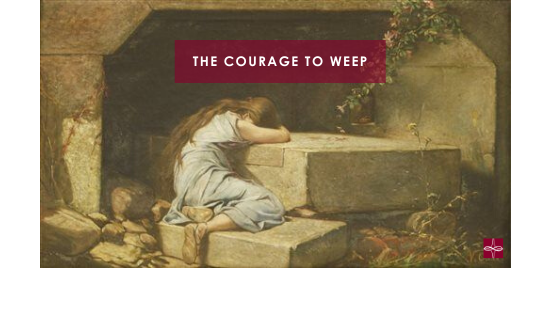

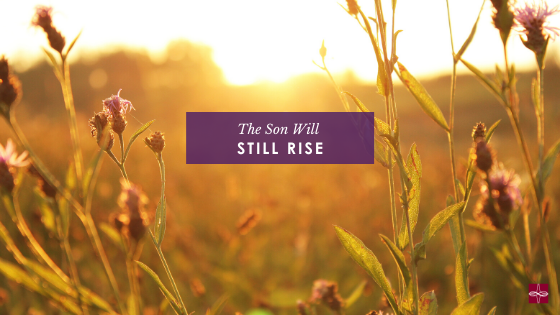

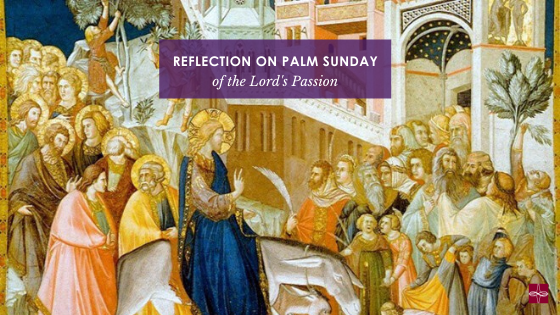
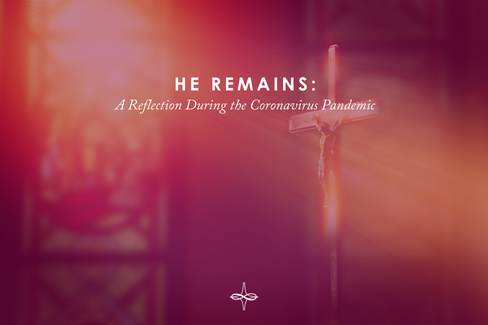





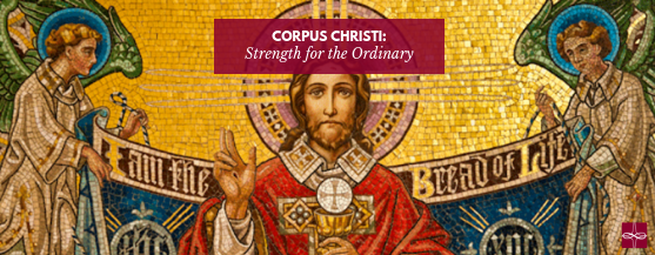

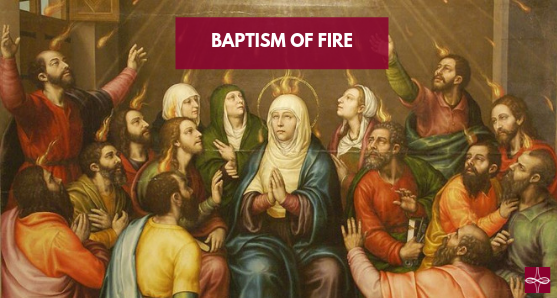

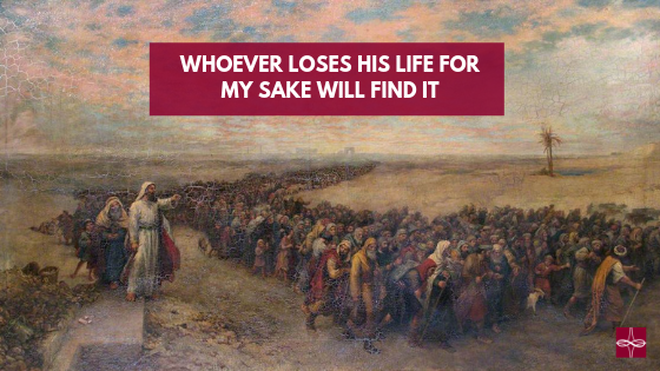

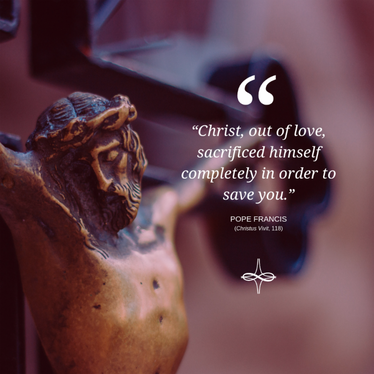
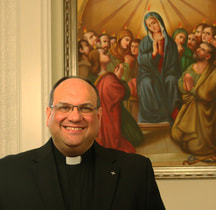
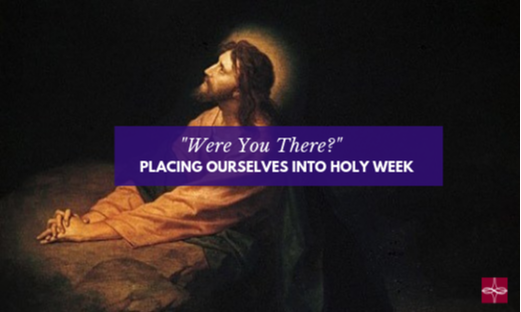

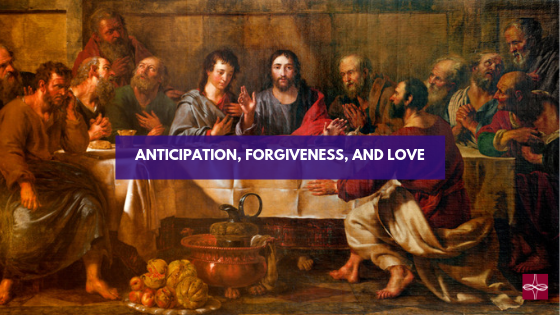

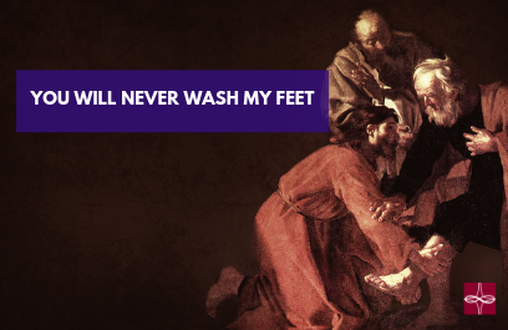

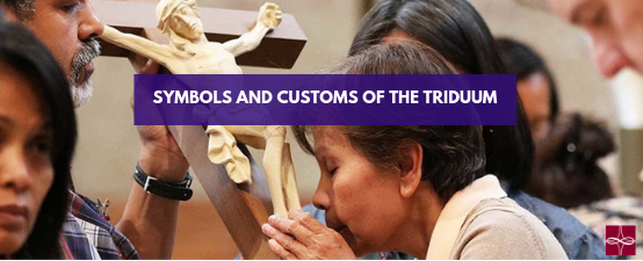

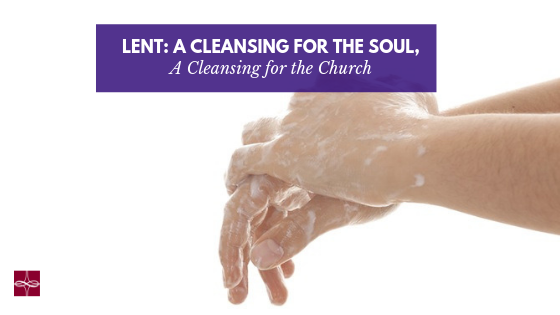

 RSS Feed
RSS Feed